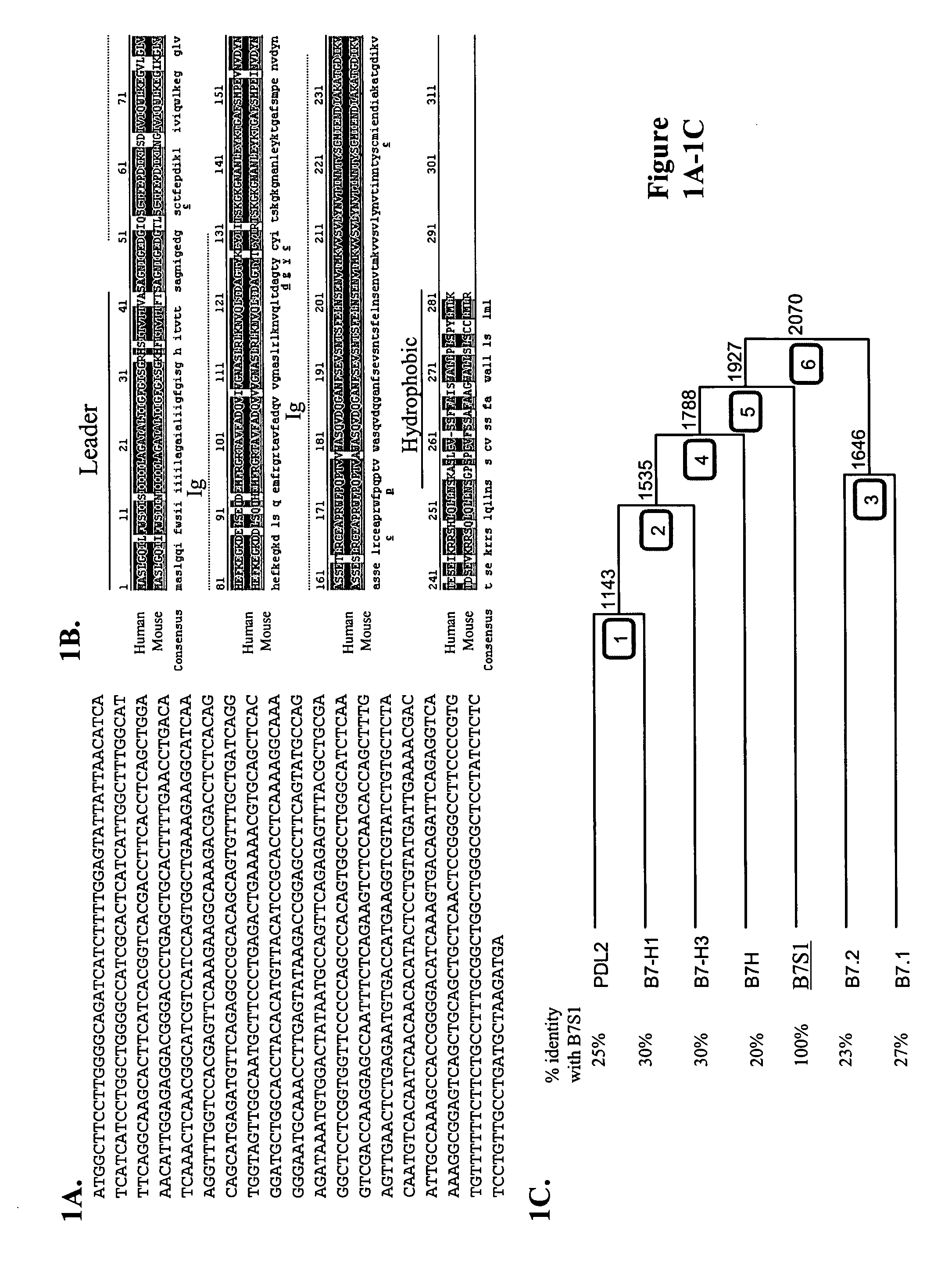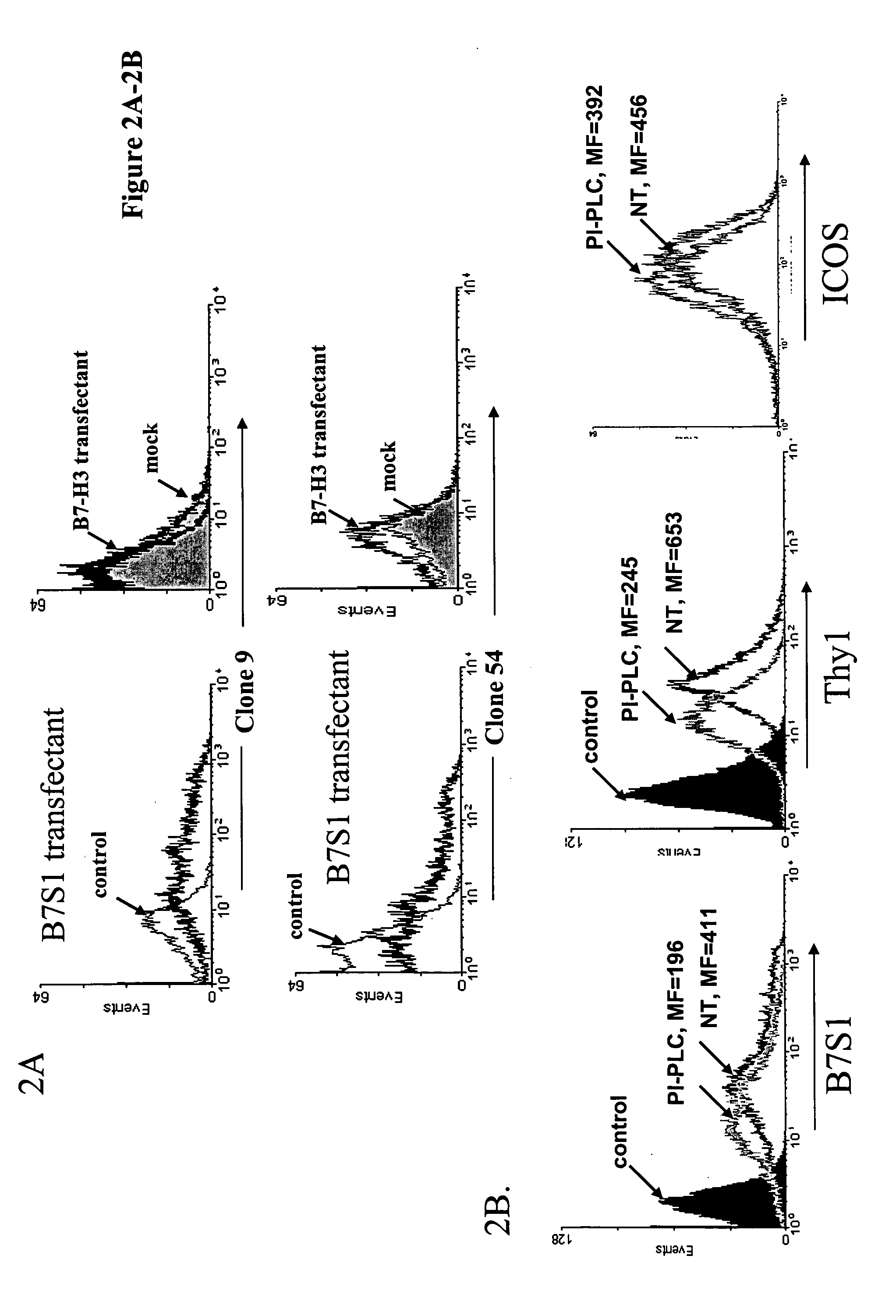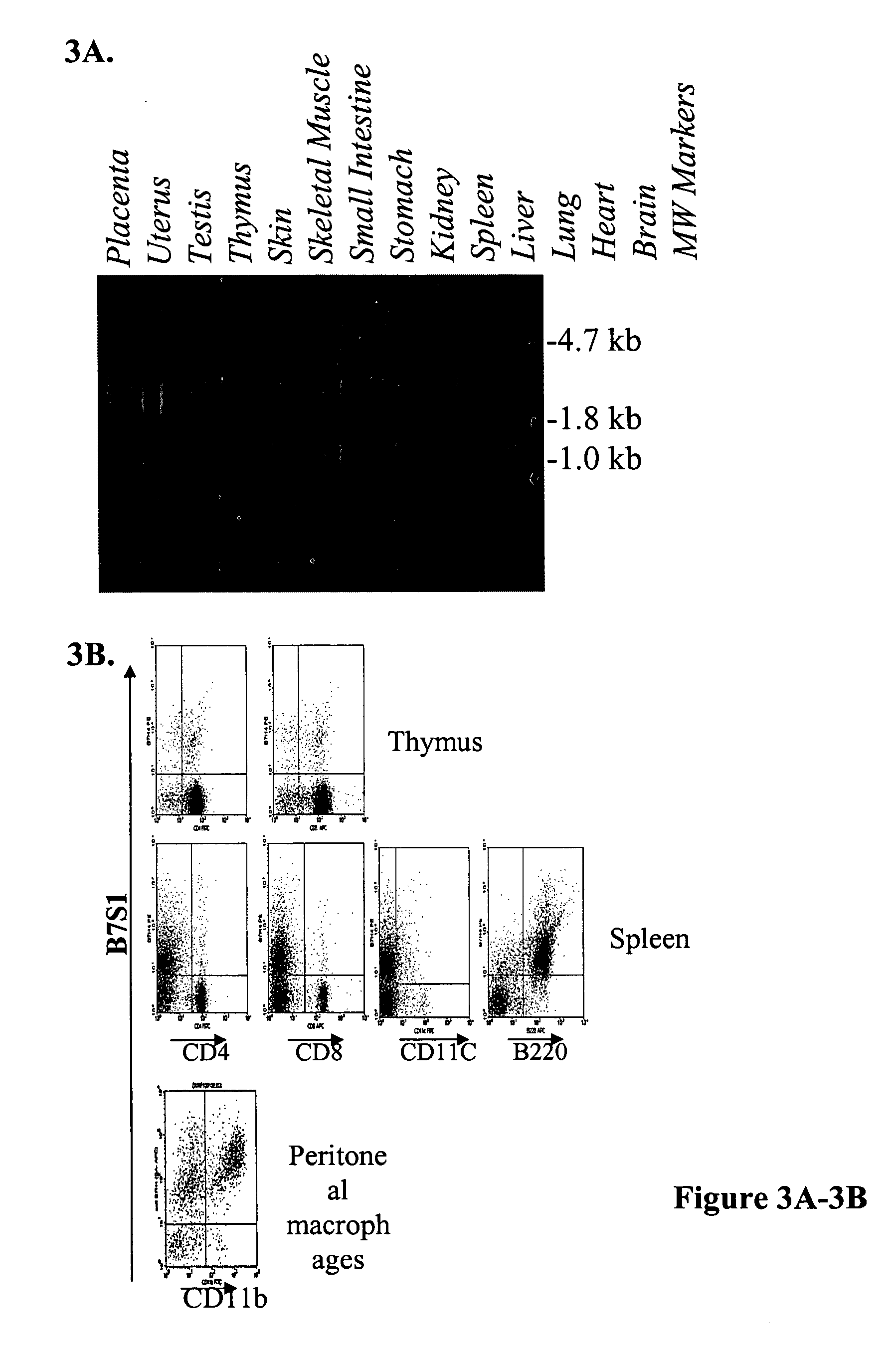B7S1: an immune modulator
a technology of immune modulator and t-cell, applied in the direction of peptides, drug compositions, fused cells, etc., can solve the problems of failure to explore the modulation of immune diseases, and achieve the effect of inhibiting t-cell activation
- Summary
- Abstract
- Description
- Claims
- Application Information
AI Technical Summary
Benefits of technology
Problems solved by technology
Method used
Image
Examples
example 1
Identification of B7S l as a New Member of the B7 Family
[0157] To identify novel members of the B7 family with potential function in immune regulation, a homology search in mouse and human EST databases using amino acid sequences of B7h and B7-H3 was performed. Human FLJ22418 molecule was found to share significant homology with these two B7-like molecules (data not shown). In addition, a mouse EST clone was found to contain nucleotide sequence encoding amino acids that are similar to the most N-terminus of FLJ22418. At the time, no function had been attributed to these sequences. A mouse B7S1 EST clone was obtained from Incyte and completely sequenced. The deduced peptide sequence from the mouse open reading frame shares striking homology with the human protein (FIG. 1A). They contain an N-terminal hydrophobic region which can serve as a leader peptide, two immunoglobulin (Ig)-like domains, and a hydrophobic C-terminus. Therefore, this novel protein shares common structural featu...
example 2
Construction of B7S1-Ig Fusion Protein
[0158] The nucleotide sequence encoding the extracellular portion of the mouse B7S1 molecule was amplified and cloned into the DES-Ig insect expression vector. This new plasmid was stably transfected into the S2 Drosophila cells which can be induced to secrete large amounts of B7S1-Ig fusion proteins. B7S1-Ig protein produced in this fashion was then purified by a Protein A column.
example 3
Generation of anti-B7S1 Monoclonal Antibodies
[0159] A female Lewis rat (3-4 month old) was immunized with 100 μg B7S1-Ig in complete Freud's adjuvant (CFA) at the foodpad, axial and lignguinal areas and boosted every 3rd day in the same protein quantity once with antigen in IFA and 4 times with antigen in PBS. The draining lymph node cells were harvested 1 day after the last boost and fused with Ag8.653 cells by PEG1500. ELISA was performed to identify the clones which produced IgG antibodies reacting with B7S1-Ig fusion protein but not with control human IgG1. These clones were further subcloned. Three IgG monoclonal antibodies were generated which stained with different affinities 293 cells transfected with a mouse B7S1 expression vector (FIG. 2A) but not the mock transfectant (FIG. 2B). At least one of them, the clone 9 antibody, appears to be specific for B7S1 as it did not bind to 293 cells transfected with a B7-H3 expression plasmid (FIG. 2B).
PUM
| Property | Measurement | Unit |
|---|---|---|
| Fraction | aaaaa | aaaaa |
| Nucleic acid sequence | aaaaa | aaaaa |
| Immunogenicity | aaaaa | aaaaa |
Abstract
Description
Claims
Application Information
 Login to View More
Login to View More - R&D
- Intellectual Property
- Life Sciences
- Materials
- Tech Scout
- Unparalleled Data Quality
- Higher Quality Content
- 60% Fewer Hallucinations
Browse by: Latest US Patents, China's latest patents, Technical Efficacy Thesaurus, Application Domain, Technology Topic, Popular Technical Reports.
© 2025 PatSnap. All rights reserved.Legal|Privacy policy|Modern Slavery Act Transparency Statement|Sitemap|About US| Contact US: help@patsnap.com



